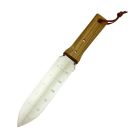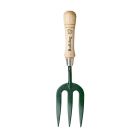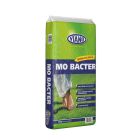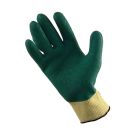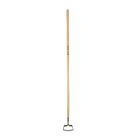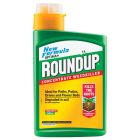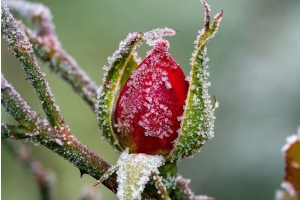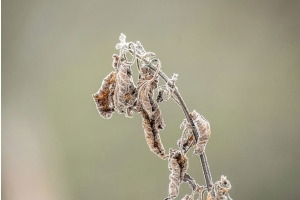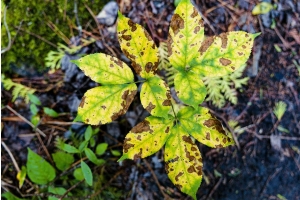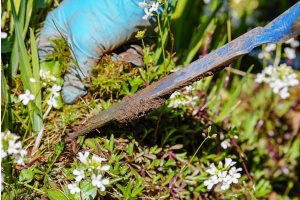How to Get Rid of Weeds
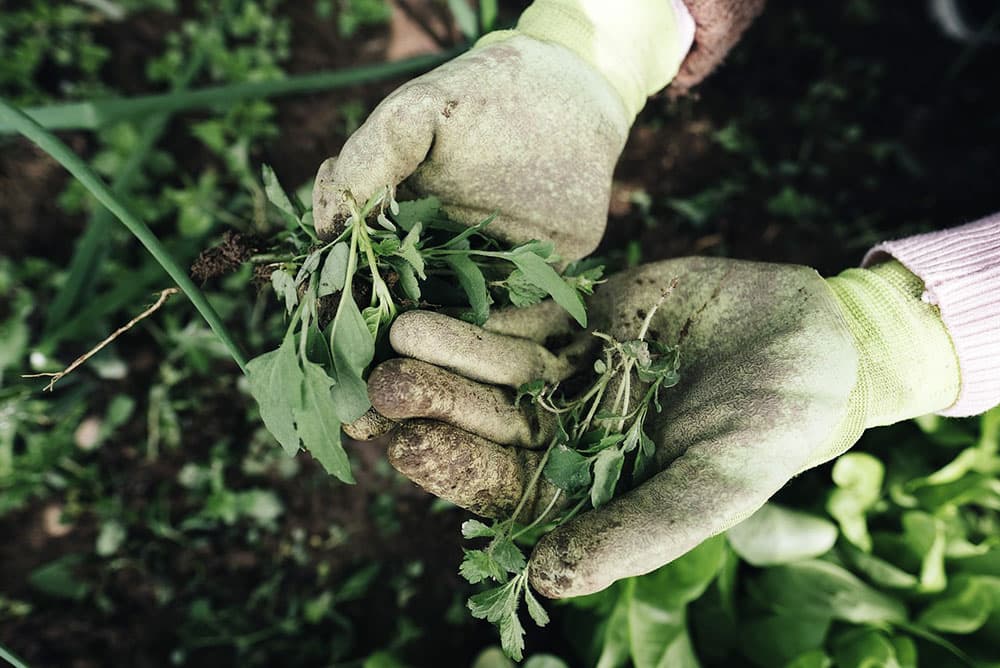
Battling with weeds is a gardening tale as old as time. If left unchecked, these small but mighty weeds can quickly overwhelm, disfigure or even destroy your cherished plants and grasses, rapidly undoing all your hard work. Fortunately, we've compiled the best weed control strategies to help you regain control of your garden.
Annual weeds are generally quick and easy to remove, but eliminating perennial species may require more time and effort. This guide will explore the best way to kill weeds once they’ve crept into your garden or lawn.
How to Get Rid of Weeds
You have several options to reclaim your garden from unwanted guests: manual removal, specialised tools and weed killers. Before escalating to chemical products, we'd suggest commencing with non-chemical methods, such as regular maintenance and physically removing weeds.
Remove Weeds by Hand
Removing weeds by hand is one of the most effective ways to eliminate weeds, mainly annual varieties. By getting in amongst the growth, you can see what you're removing and have less chance of damaging surrounding plants. Equip yourself with a pair of comfortable gardening gloves, and begin tackling the garden in small sections. Firmly grasp the weed at its base and pull it out, removing the entire root to prevent regrowth.
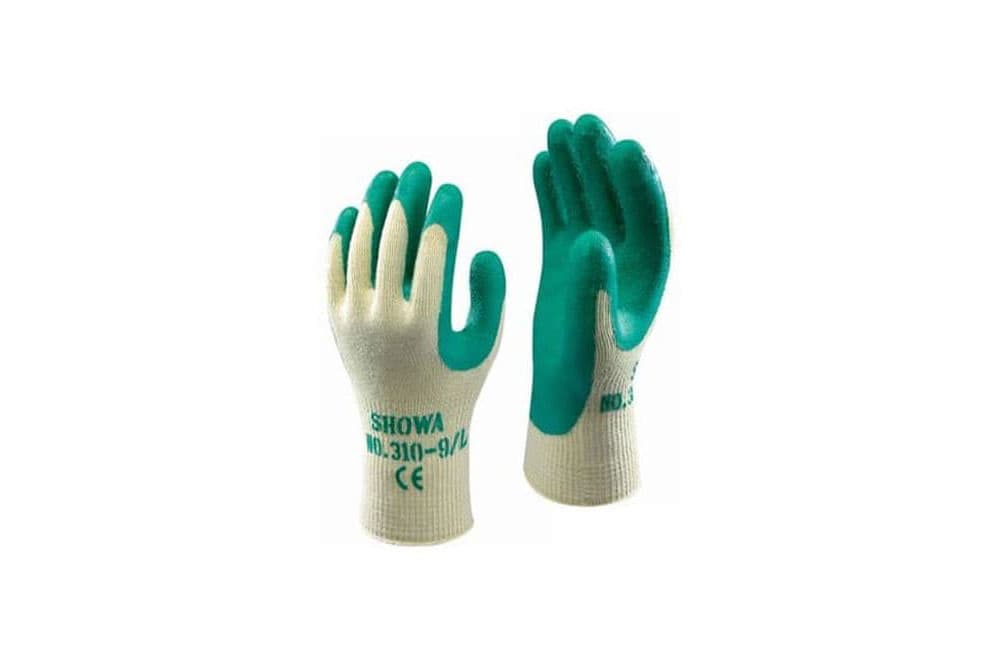
Although hand weeding can be highly effective, it can be labour-intensive and time-consuming. That’s where gardening tools can be advantageous, saving you valuable time and effort. Read on to see our recommended equipment.
Remove Weeds with Garden Tools
Many experienced gardeners agree that the secret to staying ahead of garden weeds is to adopt the approach of weeding 'little and often'. If you plan to tackle bothersome weeds regularly, it’s wise to invest in specialised tools to assist. Below are some helpful equipment suggestions for your weed-removal toolkit.
Hand Forks
A hand fork is perfect for getting up close and loosening soil around the weed, which makes removal much more manageable in heavily compacted areas. It's pronged design also helps break up dense, mat-forming weeds like chickweed, so you spend less time wrestling with stubborn growth.
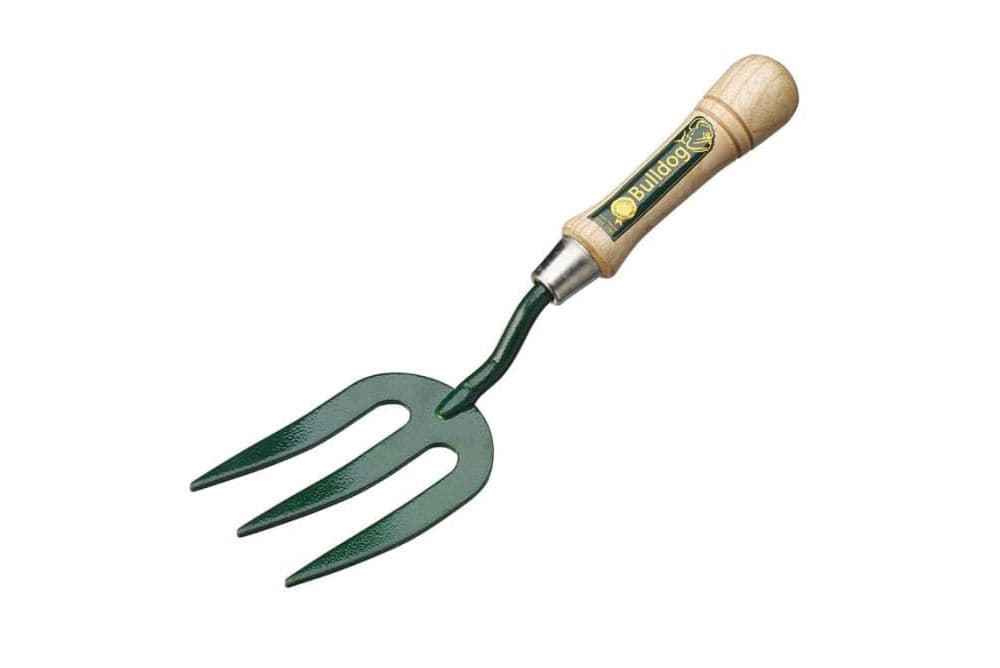
Hand Trowels
Small handheld spades or trowels are another valuable tool for weed removal. Insert the hand trowel into the soil to its full depth and lift weeds at the root to prevent regeneration and regrowth.
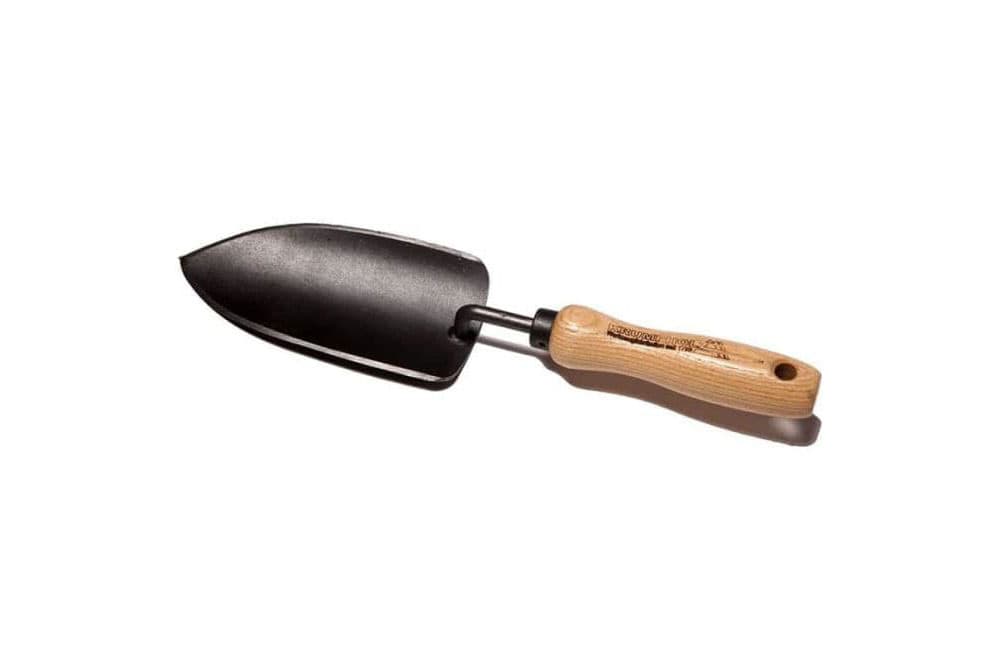
Weeding Knives
We recommend employing a weeding knife if you're operating in hard-to-reach areas, such as gaps in patios and path edges. The slim, precise blade helps scrape growth out of smaller cracks and crevices and is also handy for severing those tougher, deep-rooted weeds.
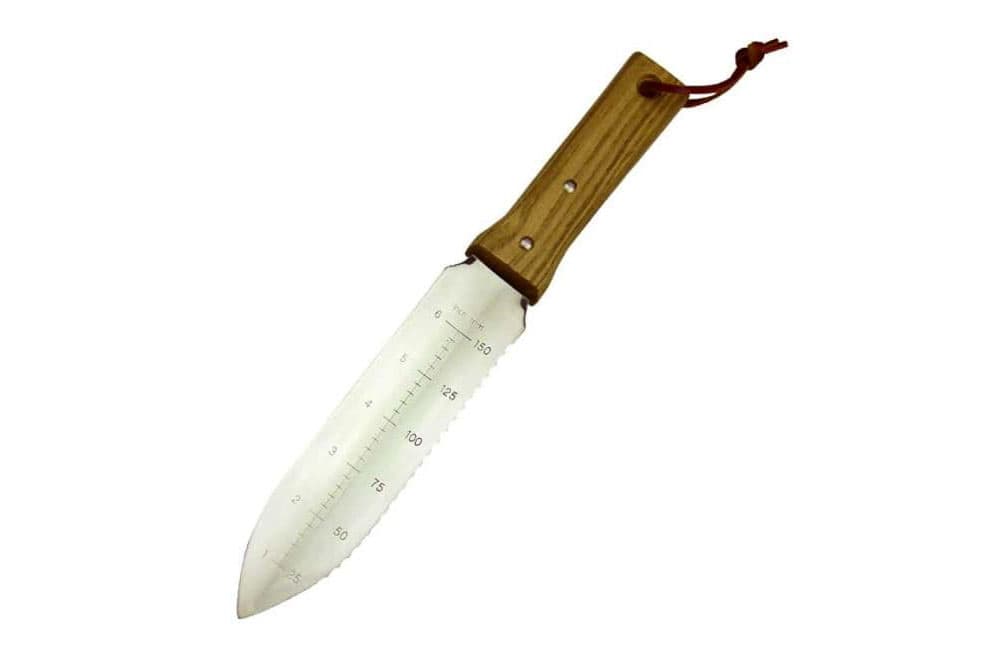
Garden Hoes
To tackle low-growing garden weeds, consider a sharp-edged hoe. One option is the Dutch Hoe, which features a wide, open blade that glides slightly beneath the soil surface, lacerating weeds from their roots.
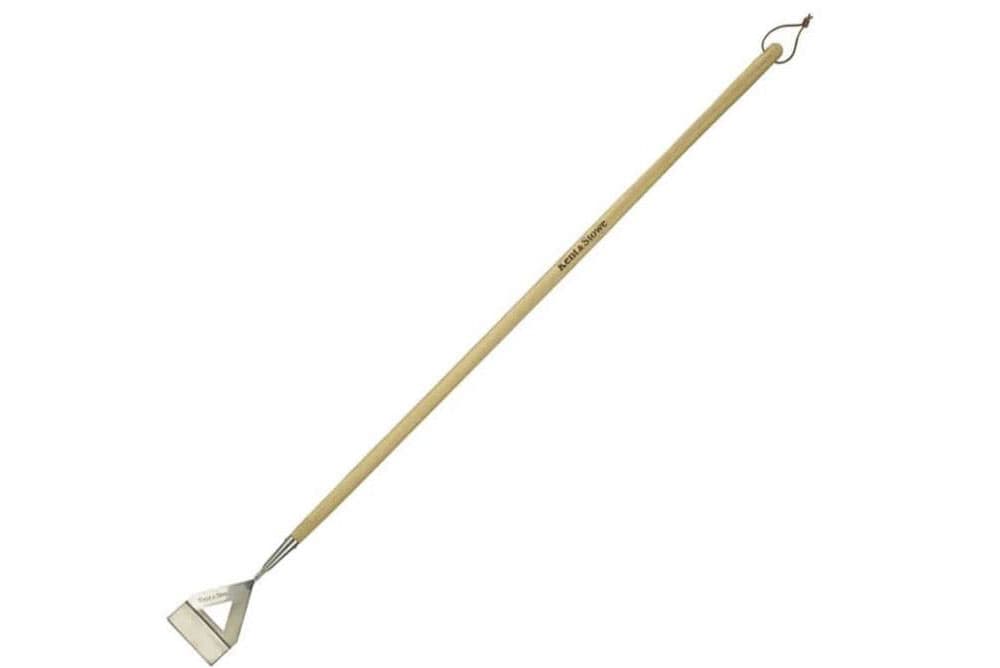
Another option is the Oscillating Hoe, ideal for a push-and-pull motion during weeding. As it can take more force, this hoe is best for managing challenging and persistent weed varieties. Opt for a tool with a long-handled design for extended reach, which helps reduce strain on your back.
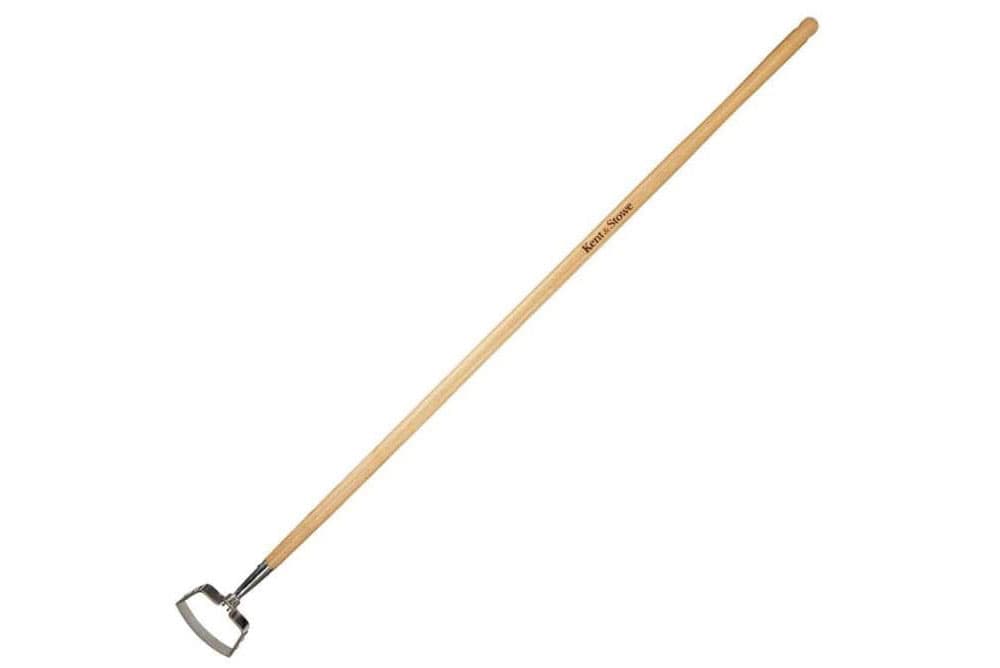
Garden Rake
If you're a proud lawn owner and want to know how to get rid of weeds in grass, don't underestimate the power of a rake. Aerating and scarifying your lawn with a rake will promote vigorous grass growth, making it more challenging for weeds to establish themselves. Regular raking and mowing can also keep creeping lawn weeds such as speedwells, clover, silverweed, and sorrels at bay.
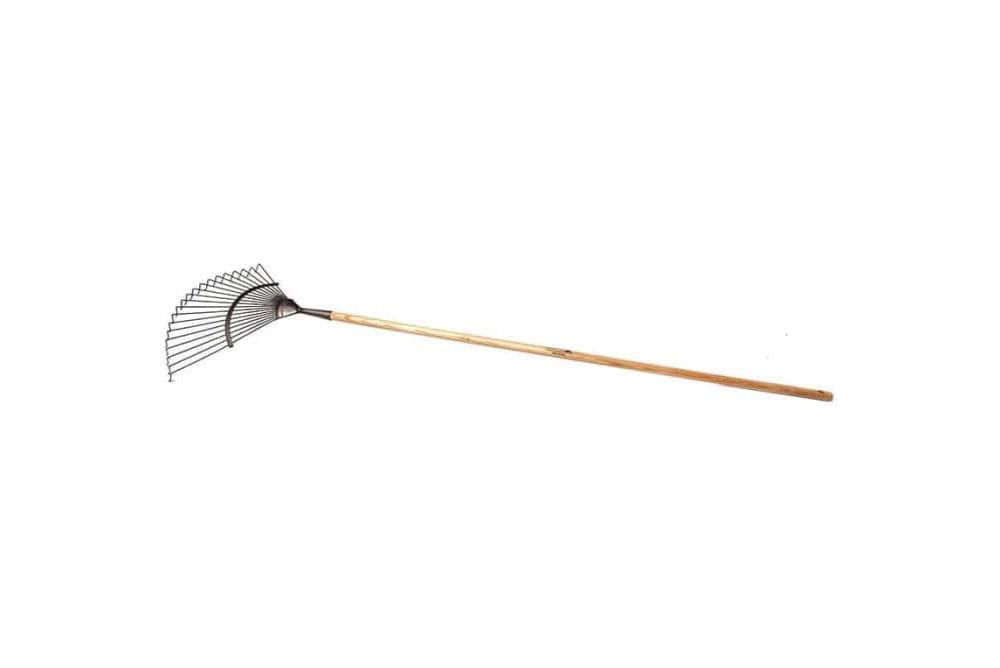
Remove with Weed Killer
If manual extraction proves ineffective, it may be time to consider using a weed killer. While chemical options can promise swift results, they often come with significant environmental concerns. Therefore, it's crucial to start with less harsh options and gradually increase potency as needed. This approach not only helps minimise harm to your surrounding plants, wildlife, and soil but also makes you a responsible and eco-conscious gardener.
Always take care to choose the most appropriate product for your needs. Before selecting a weed killer, consider these key factors:
- Speed: How quickly do you need to see results?
- Weed Control: Are you looking for quick suppression or complete removal?
- Application Area: Will it damage your surrounding growth?
- Frequency of Application: How often will you need to apply it?
Weed Killer Products
Consider starting with a biodegradable option like the Bronte Heritage Collection Weed Killer for a gentle, eco-friendly approach. This product effectively controls annual and perennial weeds, making it a versatile choice for your garden. Its biodegradable formula is fantastic for those conscious of their environmental footprint.
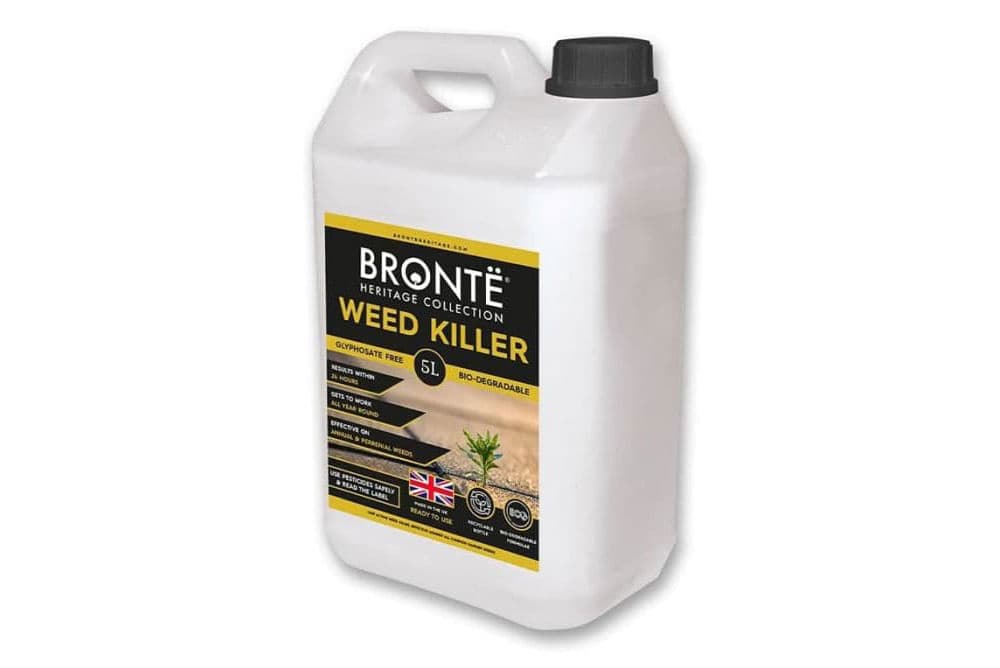
However, it's important to note that it does not kill plant roots, which means new foliage may emerge, particularly from resilient perennial weeds. Also, this non-selective formula requires careful application – keep it away from your precious vegetables, flowers, shrubs, and lawns to prevent damage.
If you need a more potent solution, ROUNDUP® Optima+ is an excellent choice. This product treats weeds in challenging areas, such as bed borders, vegetable patches, flower pots, and hedges. Although it contains herbicides like glyphosate and pelargonic acid, this systemic weedkiller works down to the roots, eliminating the entire weed and providing lasting results.
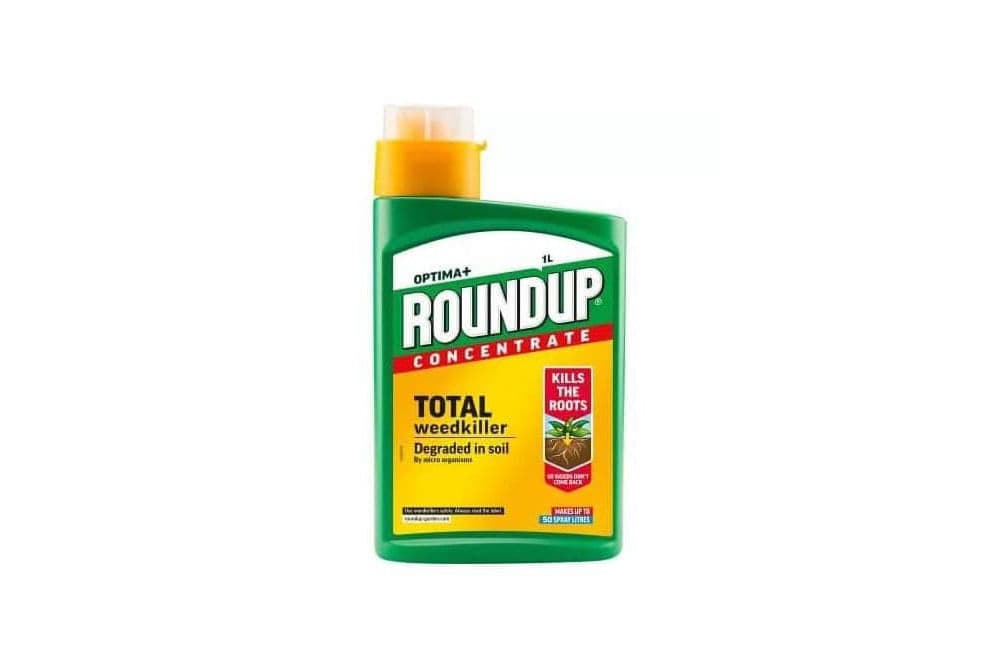
Moss Killer Products
Although moss isn't classified as a weed, it can be a nuisance, creating unsightly patches in your grass and posing safety hazards by making lawn surfaces slippery. Finding a product that nourishes rather than damages your grass is beneficial if you're determined to rid your lawn of moss.
One option is using Viano MO Bacter Mosskiller. This gentle granular organic fertiliser kills thatch and moss, nourishes grass, and enhances soil health – all in one application. Be aware that this is a slow-release product. It relies on bacteria (NPK: 5-5-20) to digest the dead moss, so it may take some time to see full results. However, the patience pays off; your lawn will soon appear revitalised, lush, and more vibrant than ever.
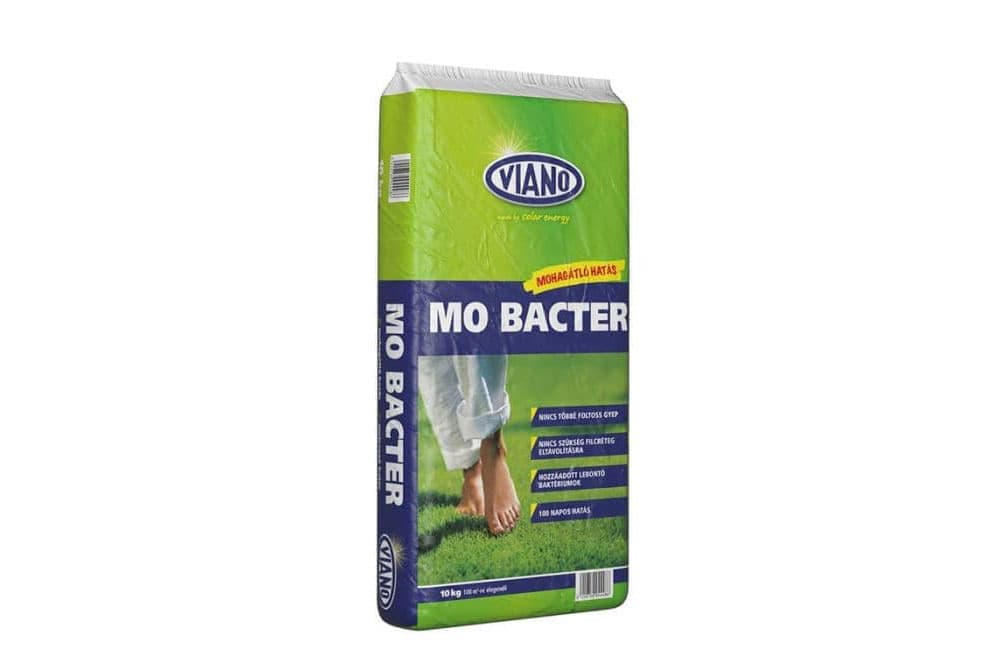
Start Tackling Your Garden Weeds Today
After successfully removing your weeds, we recommend transferring them to a small wheelbarrow or garden tub to make it easier to transport them for composting or disposal. While annual weeds can be safely composted, be cautious with perennial varieties as they tend to regrow in cold heaps, potentially spreading seeds and aggravating your weed problem.
If you need any additional weed control advice or product suggestions, feel free to reach out to our team of experts. Contact us today and learn more about achieving efficient, long-lasting results.

